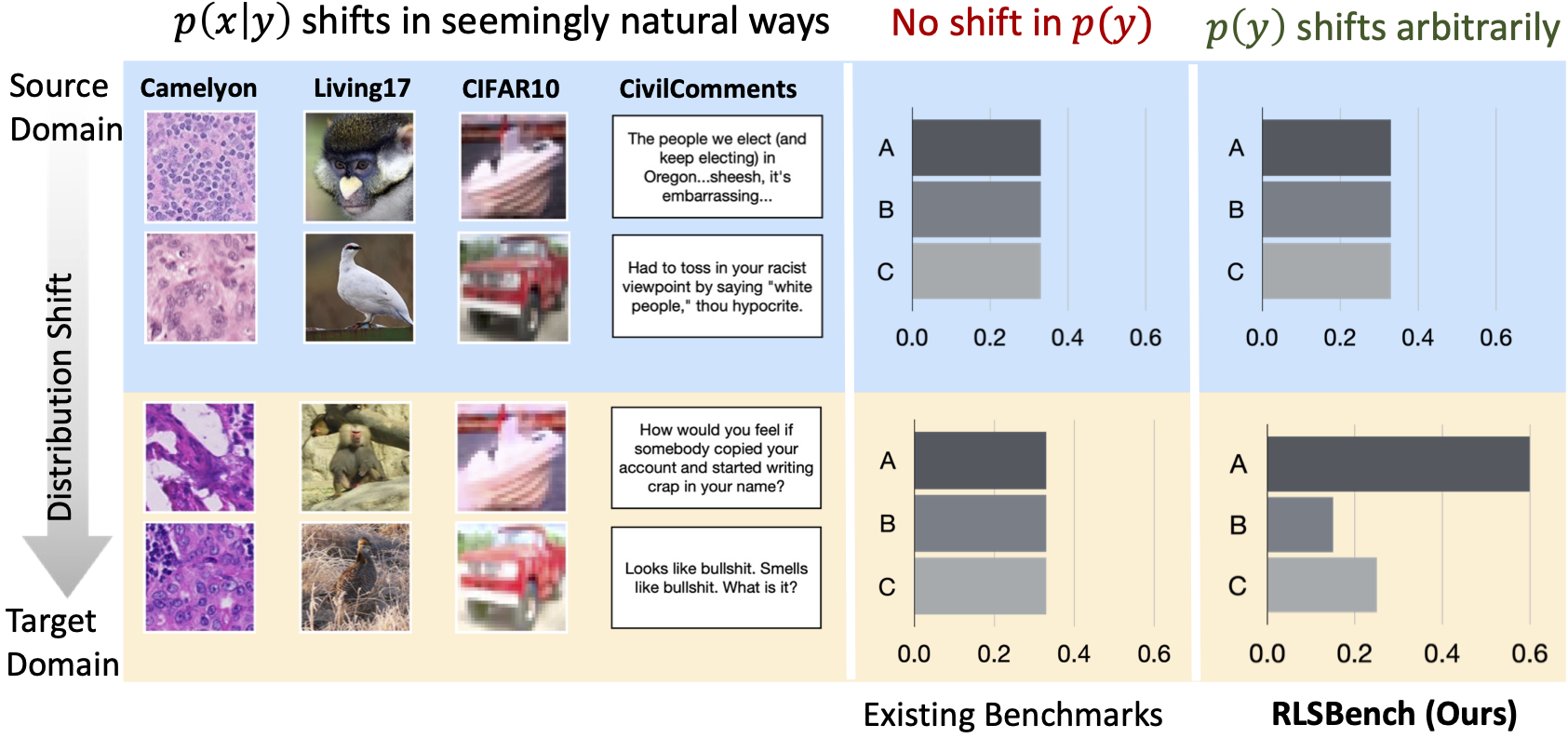RLSbench: Domain Adaptation Under Relaxed Label Shift
Despite the emergence of principled methods for domain adaptation under label shift, their sensitivity to shifts in class conditional distributions is precariously under explored. Meanwhile, popular deep domain adaptation heuristics tend to falter when faced with label proportions shifts. While several papers modify these heuristics in attempts to handle label proportions shifts, inconsistencies in evaluation standards, datasets, and baselines make it difficult to gauge the current best practices. In this paper, we introduce RLSbench, a large-scale benchmark for relaxed label shift, consisting of $>$500 distribution shift pairs spanning vision, tabular, and language modalities, with varying label proportions. Unlike existing benchmarks, which primarily focus on shifts in class-conditional $p(x|y)$, our benchmark also focuses on label marginal shifts. First, we assess 13 popular domain adaptation methods, demonstrating more widespread failures under label proportion shifts than were previously known. Next, we develop an effective two-step meta-algorithm that is compatible with most domain adaptation heuristics: (i) pseudo-balance the data at each epoch; and (ii) adjust the final classifier with target label distribution estimate. The meta-algorithm improves existing domain adaptation heuristics under large label proportion shifts, often by 2--10\% accuracy points, while conferring minimal effect ($<$0.5\%) when label proportions do not shift. We hope that these findings and the availability of RLSbench will encourage researchers to rigorously evaluate proposed methods in relaxed label shift settings. Code is publicly available at https://github.com/acmi-lab/RLSbench.
PDF Abstract


 CIFAR-10
CIFAR-10
 CIFAR-100
CIFAR-100
 Office-Home
Office-Home
 DomainNet
DomainNet
 Wilds
Wilds